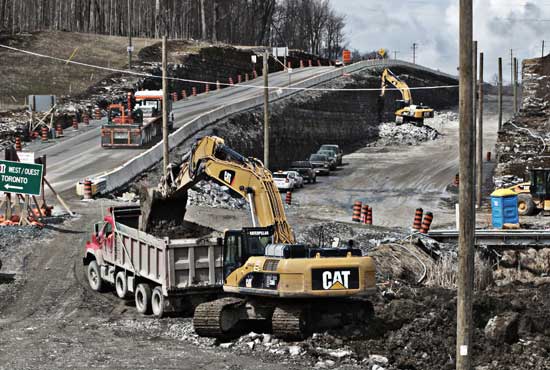Manila : Philippine govt to lift restrictions on foreign contractors
Foreign contractors will be allowed to engage in government infrastructure projects under planned changes to the Philippines’ Foreign Investment Negative List (FINL), a Cabinet official said.
“International contractors, we are taking that [prohibition]out,” Socioeconomic Planning Secretary Ernesto Pernia told reporters at the sidelines of the 2nd Annual Philippines Energy & Infrastructure Finance Forum on Thursday.
Pernia told forum participants that international contractors would be allowed to participate in so-called projects of national significance, which include the government’s 75 flagship infrastructure projects under the Duterte government’s “Build Build Build” program.
He noted that the Clark International Airport Expansion and the New Bohol Airport projects were now being bid out to private bidders for construction.
“So there are a lot of opportunities for private sector participation because government does not have construction contractors. The government will have to depend on the private sector for contractors in the construction phase of the project,” Pernia pointed out.
The updated negative list, he said, is expected to be approved later this month by the National Economic and Development Authority (NEDA).
“You will see the whole list soon,” Pernia said.
Besides contractors, retail trade, and services like professors being given appointments by local universities will also be taken off the list.
The NEDA has said that foreigners would also be allowed full ownership of investment houses.
The FINL identifies economic activities that are closed to foreign investors or where restrictions have been set on foreign ownership by the 1987 Constitution or other laws.
Provided for under the Foreign Investments Act of 1991, the latest FINL was issued on May 29, 2015 by then-President Benigno Aquino 3rd via Executive Order 184.
A review was initiated by the Duterte administration in May this year.
Japanese, Chinese firms to benefit
In a related development, think tank BMI Research said Japanese and Chinese companies would be the biggest beneficiaries of the Philippines’ infrastructure push.
“We are seeing evidence that Chinese and Japanese companies are becoming the top beneficiaries of the greater investment and project opportunities available in the country,” BMI said in a report on Thursday.
“Imports of infrastructure-related goods from China and Japan have surged over the past year, and we expect this trend to continue to manifest with the number of project opportunities remaining significant,” BMI added.
BMI noted that many infrastructure projects under the Duterte administration had shifted from the public-private partnership (PPP) mode of financing to official development assistance and have implicitly targeted generous financing packages from China and Japan.
“While this raises the risk to those international firms who had previously been targeting the burgeoning Philippine PPP market, Duterte’s move offers a significant windfall for the Chinese and Japanese companies which can leverage on their respective country financing deal,” BMI said.
BMI said the growing role of Chinese and Japanese companies in the Philippines risks crowding out other foreign players who may not have generous government financing supporting them.
with REICELENE JOY N. IGNACIO
NOTE : All photographs, news, editorials, opinions, information, data, others have been taken from the Internet ..aseanews.net |
[email protected] |
For comments, Email to : [email protected] – Contributor










